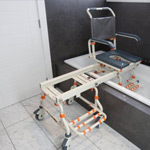Most seniors, if given the choice, would choose to remain in their own home for as long as possible rather than move to an assisted living facility. In fact, one study puts the number as high as 90 percent. This is not a mystery. For most of us – seniors included – home is where we’re comfortable; where it’s safe and familiar. We get to sleep in our own bed, eat what and when we like, and have a certain amount of privacy.
By and large, an elderly person who remains at home has a greater measure of independence than a contemporary who lives in an assisted living situation and giving up one’s independence can be difficult. In fact, for some seniors, transitioning to an assisted living community can be psychologically devastating, as it portends the end of one of life’s chapters, and the beginning of an unknown experience out of one’s comfort zone.
However, some seniors who do choose to remain at home may experience social isolation and poor nutrition which can contribute to cognitive decline, health problems, depression, and a diminished quality of life – especially if some of the activities of daily living (ADLs), like dressing, bathing, cooking, cleaning, going up and down stairs, etc. become too difficult. These seniors must come to terms with the situation that is facing them. Either they can stay in the home they love, or they can make the move to assisted living.
Luckily, today, more and more seniors have the option of “aging in place,” as long as they are willing to make certain modifications in the way they live and to the houses in which they live.
For example, even if one is not completely healthy, with home-healthcare, seniors can have their medical needs attended to most satisfactorily without having to leave home. In fact, one study found that those seniors who received in-home care visited the doctor 25 percent fewer times than those that didn’t receive in-home care. Clients with Alzheimer’s or other dementia diseases made almost 50 percent less trips to the doctor. In addition, other in-home services such as housecleaning, non-medical care, shopping, transportation, and food services can help offset the need for an elderly individual to have to struggle with common, everyday chores.
Making the home more “senior-safe” is another tactic that will allow an elderly individual to remain longer in the home he or she loves. Some general home alterations include the widening of doorways, and the installation of grab bars in the bathroom and/or shower, bed rails, and some type of stairlift in homes that contain more than one story. For seniors restricted to a wheel chair, an outdoor ramp or porch lift can enable them go in and out safely and at will. In addition, home monitoring equipment can let family members keep an eye on an aged loved one from a distance.
None of this should suggest that a transfer to assisted living can’t be a viable option for some seniors. There are certainly some advantages for the elderly individual whose needs – both medical and mundane – can be attended to in a professionally operated assisted living facility staffed by competent and caring people. However, for those seniors who wish to stay at home, and know the necessary modifications that are available, aging in place is certainly easier to accomplish now than ever before.
At Pacific Mobility, we are the aging in place experts. Our staff has the knowledge and experience to help you design and implement your home modifications so that you can continue to remain in the home you love for as long as possible. Call us today for a free consultation.
President, Husband, Father, Grandfather Graduate of UC Davis- Bio Sci Major- Go Aggies! Jeff has extensive experience in all of Pacific Mobility’s products and services, and specializes in accessibility products as well as stairlifts, ceiling lifts and custom wheel chairs. His hobbies include spending time with family, gardening, mountain biking, exercising and off road motorcycle riding.
24 years as Owner/President of Pacific Mobility Center – selling, installing, and servicing stairlifts, porch lifts, ceiling lifts, pool lifts, handicap ramping, specialty wheelchairs, scooters, power wheel chairs, and other power mobility devices
Certified Environmental Access Consultant since 2008
Licensed General Contractor since 1998
Certified Aging in Place Specialist since 2016
Board Member for Home Access Professionals
Member of Association of Members of the Accessibility Equipment Industry (AEMA)




